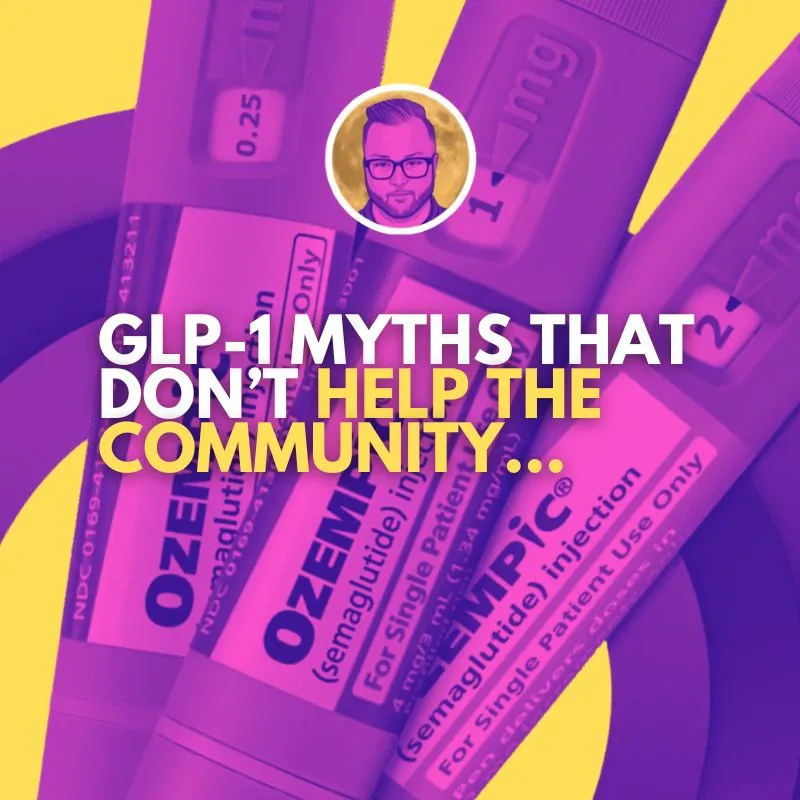Three Myths Holding Back the GLP-1 Community
- Dave Knapp

- Sep 5, 2025
- 2 min read
As more patients turn to GLP-1 medications, it is time to clear the air on privacy, dosing, and false promises.

At On The Pen, our mission is to foster a patient-centered conversation about GLP-1 medications. We strive to bring clarity, compassion, and advocacy to a space that is too often clouded by misinformation and stigma. As the GLP-1 community grows, it is vital that we also hold ourselves accountable for the culture we are building.
This Substack is reader-supported.
To receive new posts and support my work,
consider becoming a free or paid subscriber.
In that spirit, here are three beliefs and behaviors the GLP-1 community would do well to leave behind.
First, we need to end the practice of speculating about who might be on a GLP-1 medication.
Whether it is a public figure or someone in your personal life, pointing to dramatic weight loss and assuming, or publicly suggesting, that they must be taking a GLP-1 crosses a line. Obesity is a disease. The decision to treat it, and how to treat it, is a personal matter and should remain private unless a person chooses to share.
We do not publicly speculate about how someone manages their blood pressure or their cancer treatment. The same respect should apply here. Outing someone’s treatment undermines both medical privacy and dignity.
Watch the video and follow along on Instagram! ⬇️
Second, we need to reject the idea that “less medication” is morally superior.
There is a growing tendency within the community to celebrate those who lose weight on the lowest possible dose of medication, or to imply that needing a higher dose is a sign of weakness or failure. This framing is not supported by science.
Obesity is a highly heterogeneous disease with multiple contributing factors, including genetics, hormonal regulation, gut-brain signaling, and environmental influences. There is ample evidence that individual responses to GLP-1 therapy vary considerably. Some patients experience robust effects on low doses. Others require higher doses to achieve similar outcomes. And some will require adjunctive therapies beyond GLP-1s to fully manage their disease.
There is no “prize” for losing weight on a lower dose. The goal is effective disease management, tailored to each individual’s needs. Medical care should never be a contest.
Third, we need to move past the notion that there is a universal hack for making GLP-1s work better.
Obesity is a complex, chronic disease. While lifestyle interventions remain important, there is no supplement, dietary trick, or “cheat code” that will universally enhance the efficacy of GLP-1 therapies. Claims to the contrary are often anecdotal at best, and at worst, exploitative.
Current clinical data tell us that patient response to GLP-1s depends on a wide range of biological and behavioral factors. Finding what works for you is valuable, and sharing experiences can be helpful. But implying that your approach will automatically work for everyone risks spreading misinformation and setting unrealistic expectations.
As a community, we should remain grounded in what the evidence tells us: obesity is a serious disease that requires personalized treatment. GLP-1 medications have opened new doors, but the path forward must be built on respect, empathy, and science.
What did I miss? Let me know in the comments below!









Comments